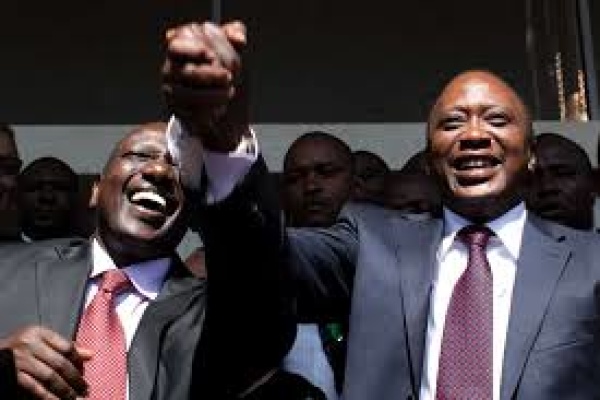Writer James Kimalel should have perused the new Constitution before penning his opinion piece titled “Foreign interests funding civil society to compromise Kenya’s sovereignty” (DN, March 19).
He would have swiftly abandoned his inaccurate speculation that Kenya’s sovereignty is under attack when cases are filed regarding the electoral process.
Article 1(1) of the Constitution says: “All sovereign power belongs to the people of Kenya and shall be exercised only in accordance with this Constitution.”
Sadly, he did not read the Constitution; nor did the Nation editors who published the piece without undertaking basic fact-checking.
To characterise the exercise of democratic rights whose aim is the protection and promotion of human rights as an attempt to “compromise Kenya’s sovereignty” is an outrageous attack, not just on the rights enshrined in the Constitution, but also on the Constitution itself. That this is being masked under the flag of nationalism and patriotism is deeply disturbing.
Are we no longer free to think, express and act on the basis of our own beliefs? Last time I checked, Chapter Four of the 2010 Constitution (Articles 19-59) enshrines the Bill of Rights where such rights as freedom of opinion, expression, the media, information, association, and even political rights are explicitly protected.
Moreover, under Article 86, there are clear requirements for the Independent Electoral and Boundaries Commission to fulfil. Any citizen has the right to come forward to make a case that the requirements provided for under Article 86 were neglected.
The courts must listen and independently determine whether this was the case. If the evidence does not stand up in court, the case will fail. If the evidence stands up, then the case will succeed. That is the rule of law. Since when has filing a case become an attack on Kenya’s sovereignty?
Under the Constitution, Kenyans are permitted to exercise their constitutional rights.
It is permitted by law to file a case where a party is seeking due process. Kenyans have rights. How they choose to exercise those rights, as well as whom they associate with in so doing, is their prerogative as long as they remain within the law.
To simplistically claim that the right to file a case and exercise constitutional rights by filing a law suit is “legal warfare” and an attack on Kenyan sovereignty because an organisation received donor support illustrates a shallow understanding of the judicial process.
The very filing of a case intended to observe, protect, fulfil and promote the Constitution cannot be an attack on Kenyan sovereignty.
The era of “big brother” was relegated to reality television through the sovereign exercise of the promulgation of a new Constitution on August 27, 2010.
Of course, there are those who did not believe, and still do not believe, that Kenya’s democratic Jurassic age came to an end and are assiduously trying to return us there.
If Mr Kimalel is anything to go by, it seems that a new, long freezing winter awaits Kenya’s democracy. From the archival toolbox of the repressive Moi-Kanu era seems to have been unearthed and re-engaged some old favourites of the thought-police juggernaut: lies, innuendo, propaganda and misrepresentation.
No longer are people supposed to question or think differently from their leadership; those who do will be ruthlessly tarred with the brush of being unpatriotic.
“Look,” the thought-police shout, “these are vassals and Trojan horses for Western imperialism.”
Is anything that is foreign-funded nowadays a threat to Kenya’s sovereignty? If this is the case, could someone explain why the government is still raising funds internationally for the Lamu Port South Sudan Ethiopia Transport (Lapsset) project? Or the fact that the Free Primary Education programme is still funded largely by foreigners?
Are we wrong to notice that any time there is famine in Kenya, our top government officials proceed from foreign capital to foreign capital, begging bowl in hand?
Mr Kiai is the Kenya programme manager at the Open Society Initiative for Eastern Africa (Osiea). The views expressed here are entirely his, not Osiea’s.
